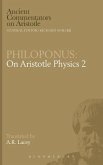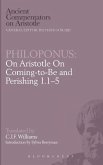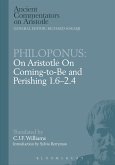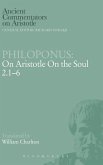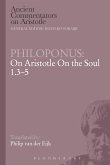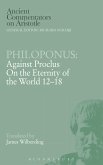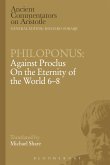In the Corollaries on Place and Void, Philoponus attacks Aristotle's conception of place as two-dimensional, adopting instead the view more familiar to us that it is three-dimensional, inert and conceivable as void. Philoponus' denial that velocity in the void would be infinite anticipated Galileo, as did his denial that speed of fall is proportionate to weight, which Galileo greatly developed. In the second document Simplicius attacks a lost treatise of Philoponus which argued for the Christians against the eternity of the world. He exploits Aristotle's concession that the world contains only finite power. Simplicius' presentation of Philoponus' arguments (which may well be tendentious), together with his replies, tell us a good deal about both Philosophers.
Hinweis: Dieser Artikel kann nur an eine deutsche Lieferadresse ausgeliefert werden.
Hinweis: Dieser Artikel kann nur an eine deutsche Lieferadresse ausgeliefert werden.


